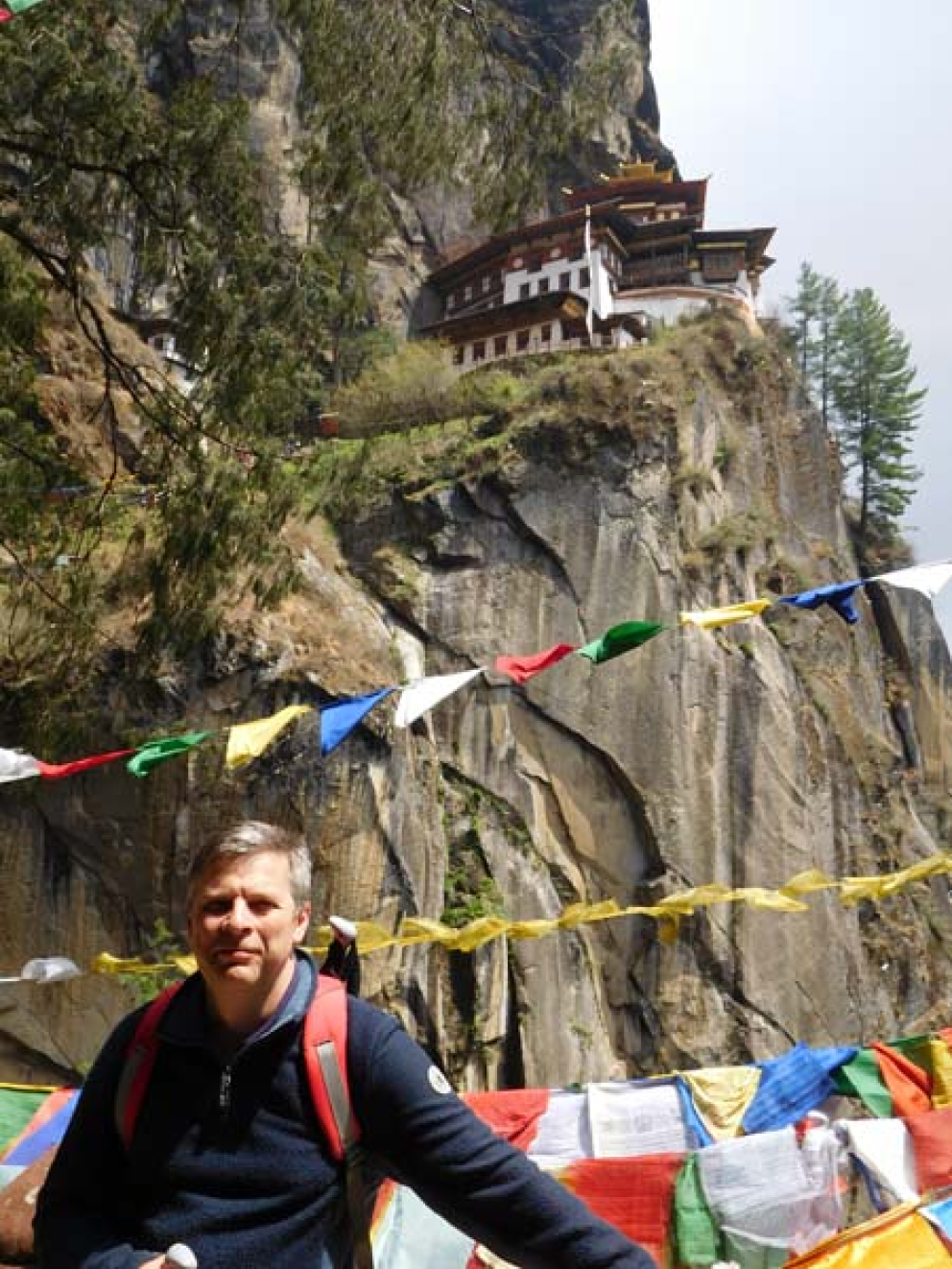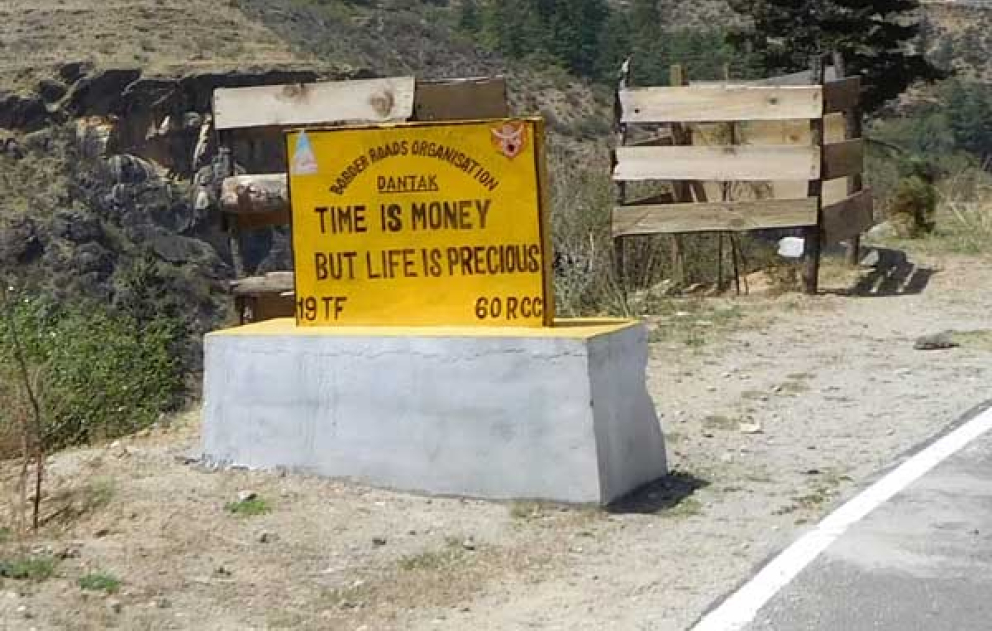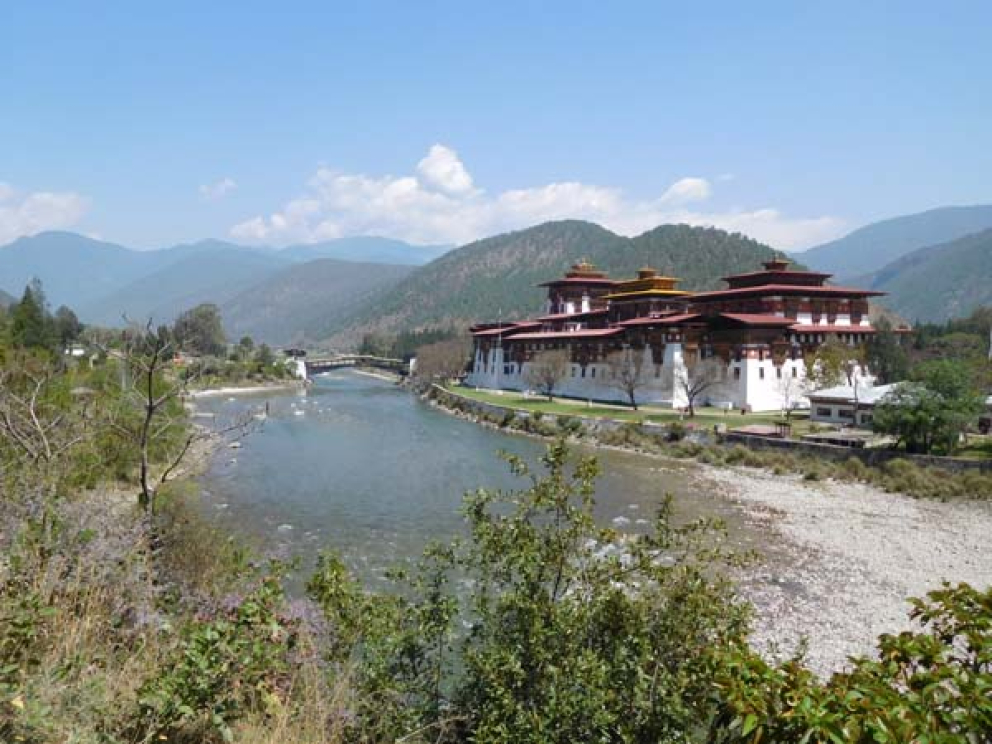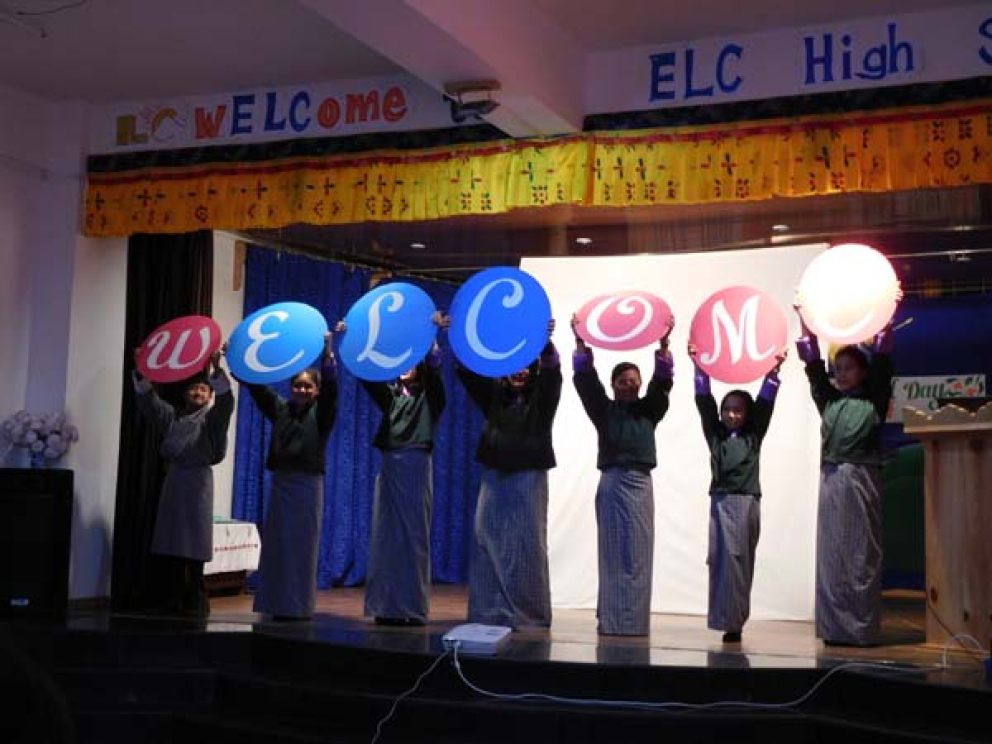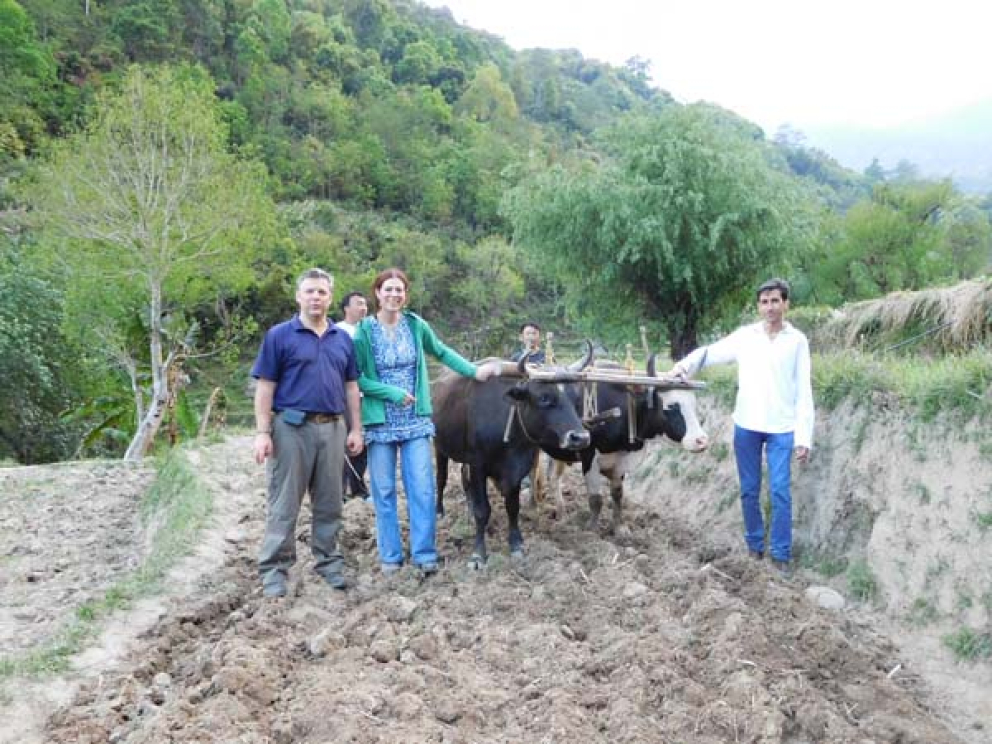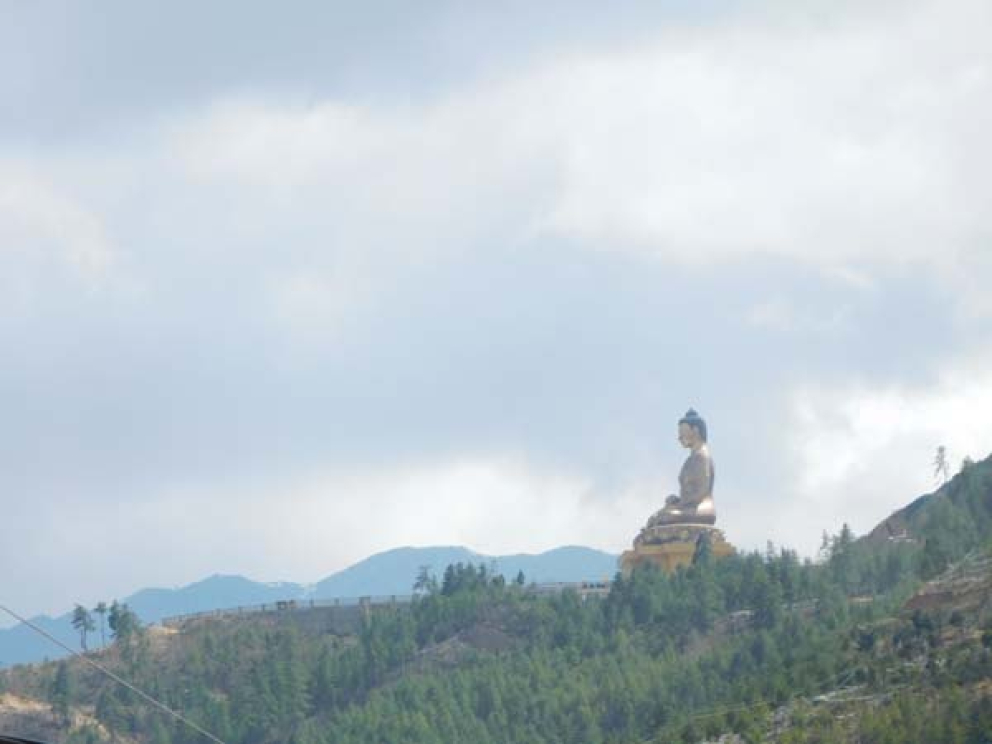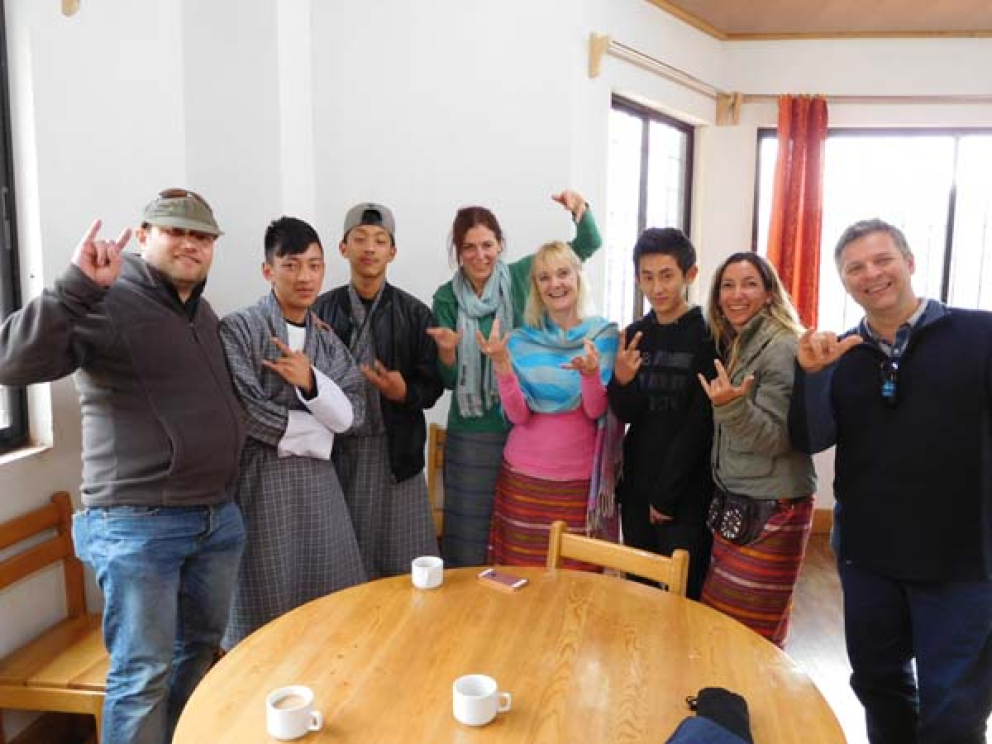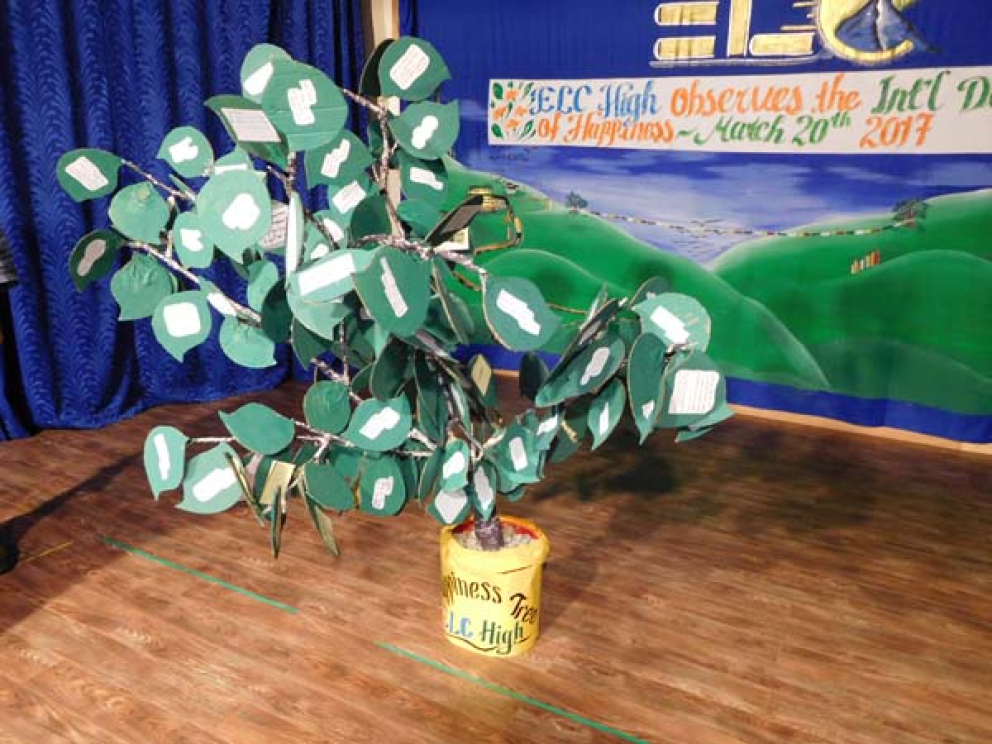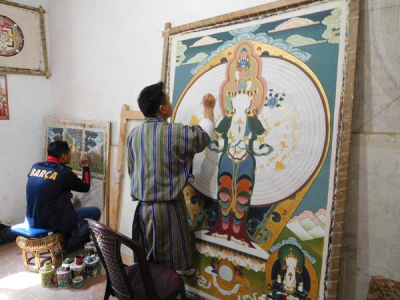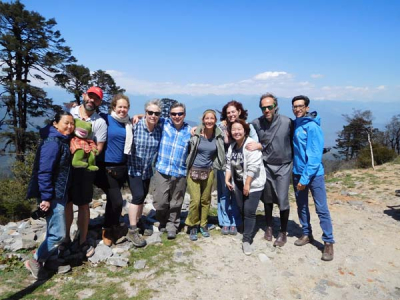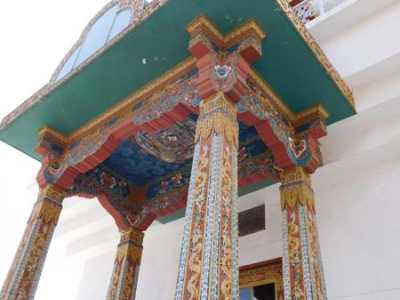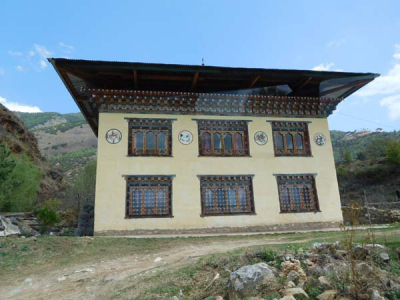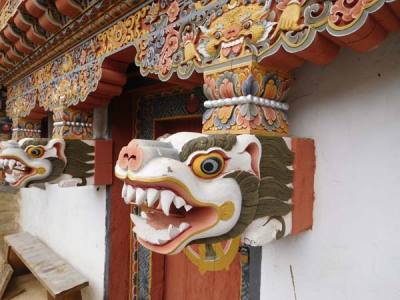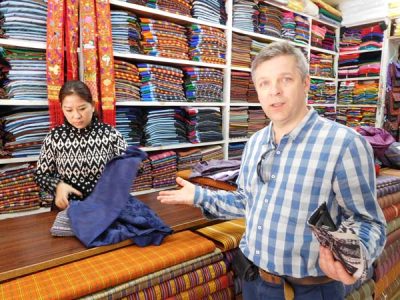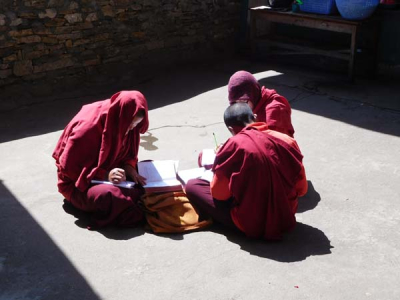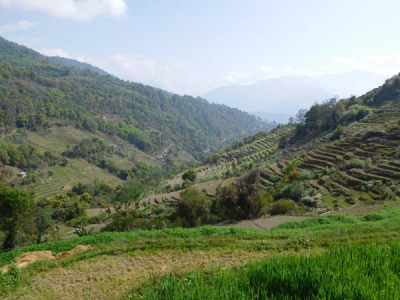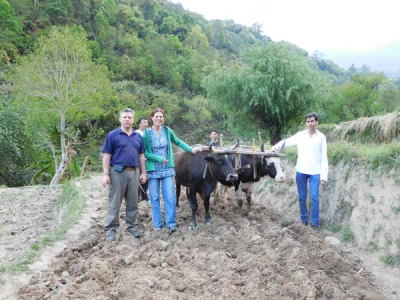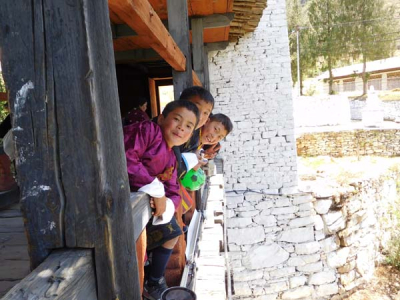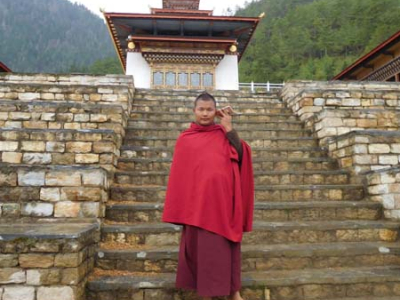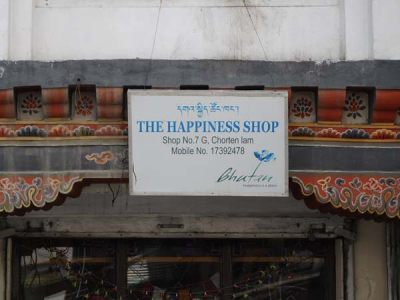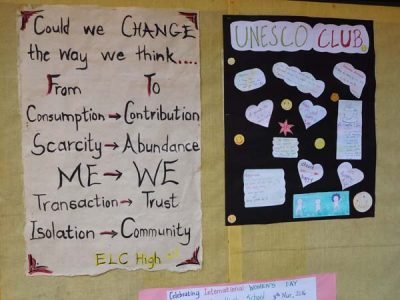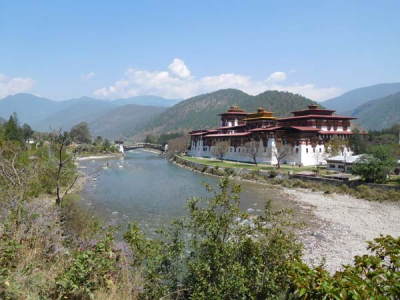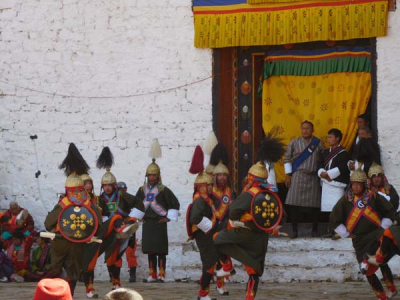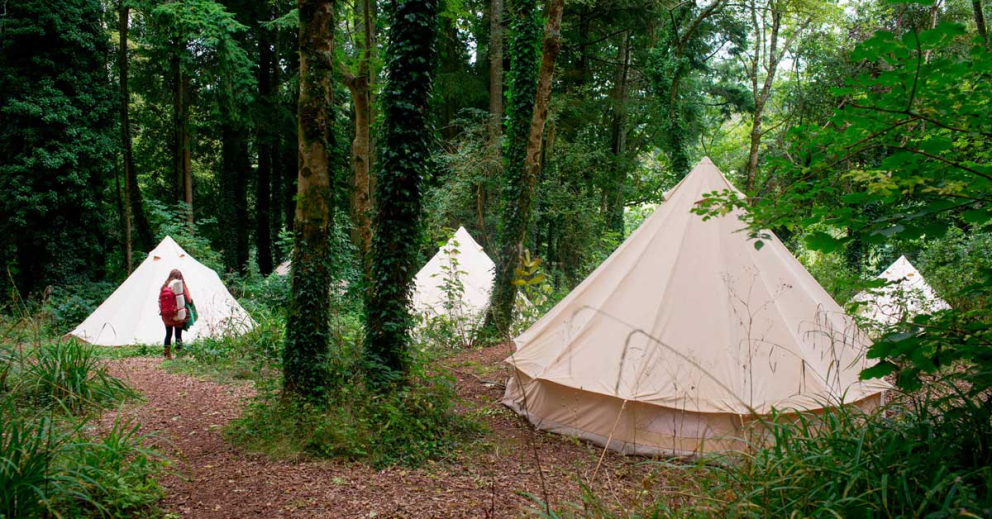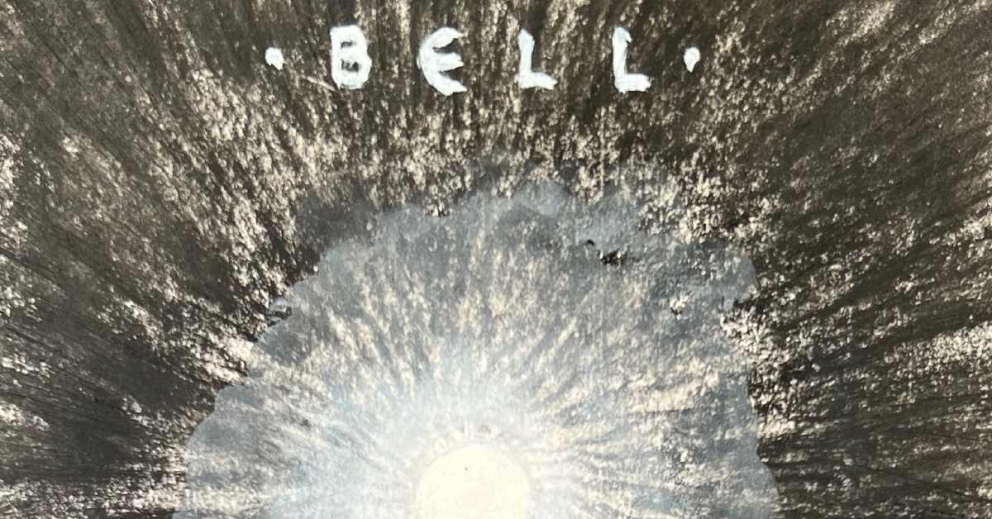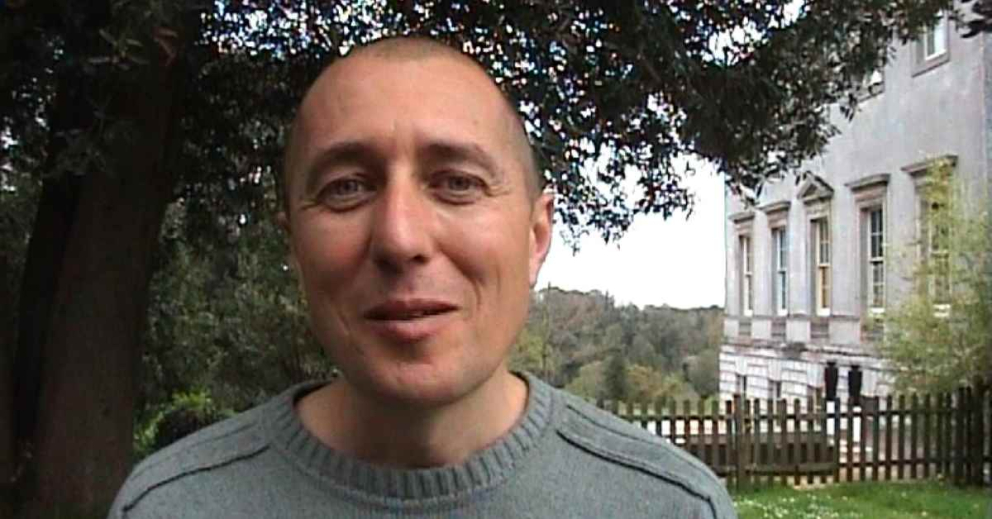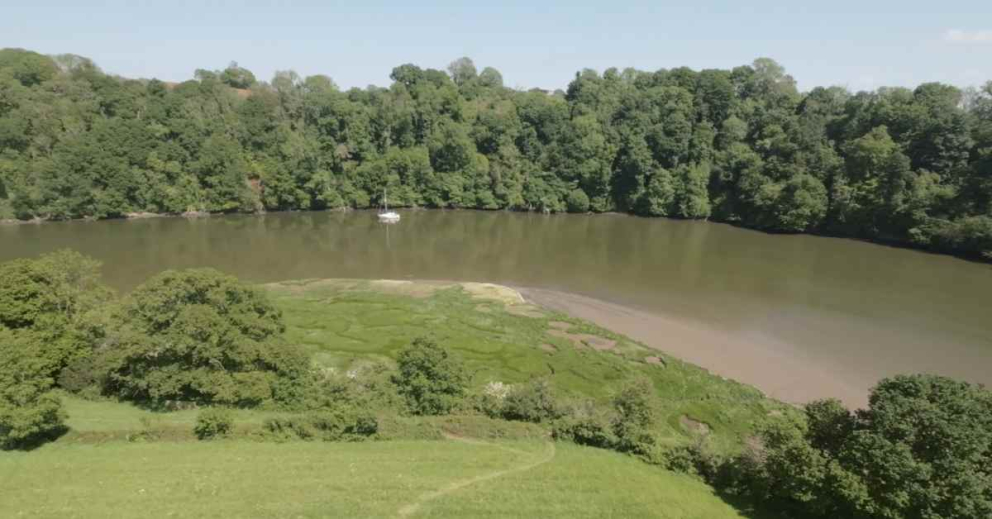Bhutan is a small country with a population of around 740,000, the majority of whom are Buddhist. Until recently the country was ruled by a royal family but in 2005 the much-loved King took the decision to abdicate in favour of his son and to create a parliamentary democracy with the first-ever elections being held in 2008.
The royal family is still very much respected, a fact we witnessed when we attended the annual dance festival in Paro overseen by the Queen. It seemed like most of the local population were out in force all wearing their very best traditional clothes. Indeed it is government policy to maintain such traditions and preserve the Bhutanese culture in the face of westernisation and development.
The previous fourth King who had so recently abdicated was the reason for us visiting Bhutan because it was he who 30 years ago announced that as well as pursuing economic development, commonly referred to as Gross Domestic Product, Bhutan would instead pursue Gross National Happiness. GDP as a measure of economic activity does not distinguish between those activities that increase a nation’s wealth and those that deplete its natural resources or result in poor health or widening social inequalities.
As the present King, His Majesty Jigme Khesar Namgyel Wangchuck has said: “Today GNH has come to mean so many things to so many people, but to me it signifies simply – development with values. Thus for my nation today GNH is the bridge between the fundamental values of kindness, equality and humanity and the necessary pursuit of economic growth. GNH acts as our National Conscience guiding us towards making wise decisions for a better future.”
